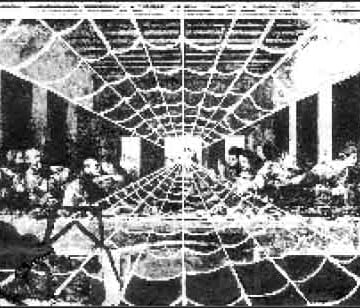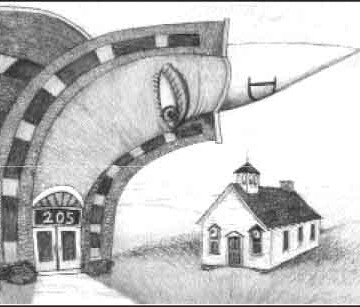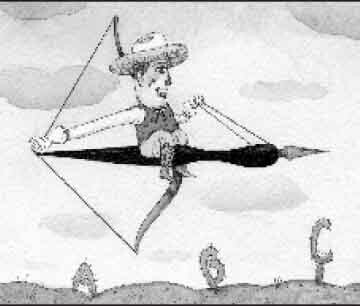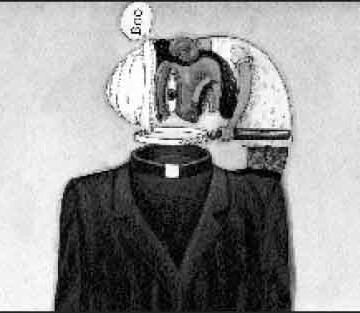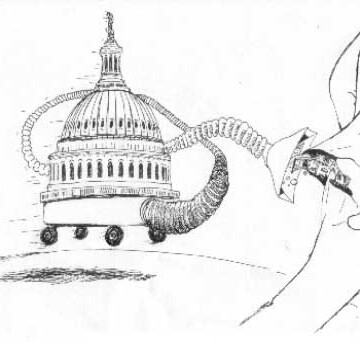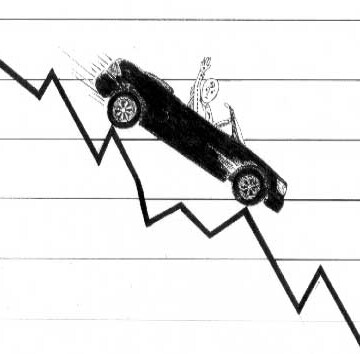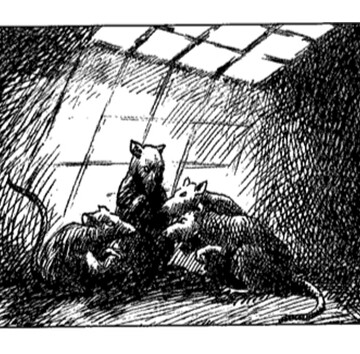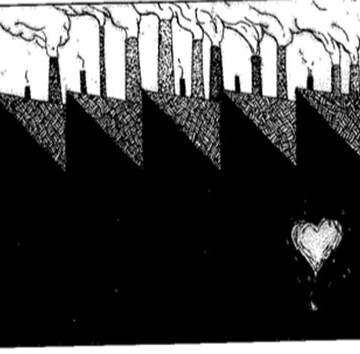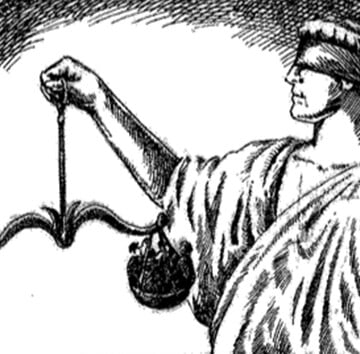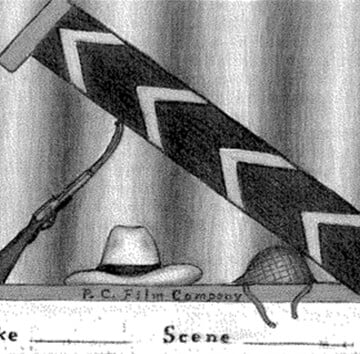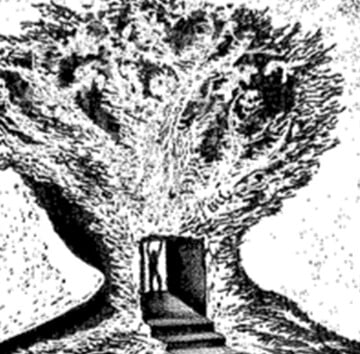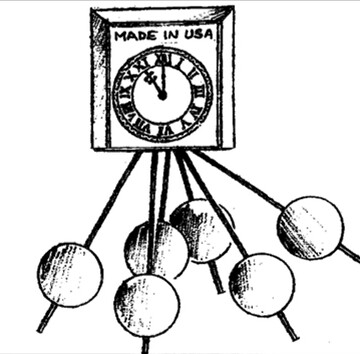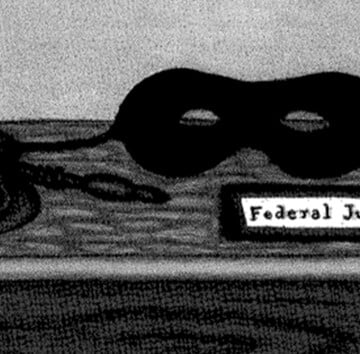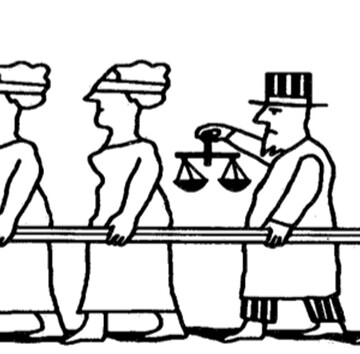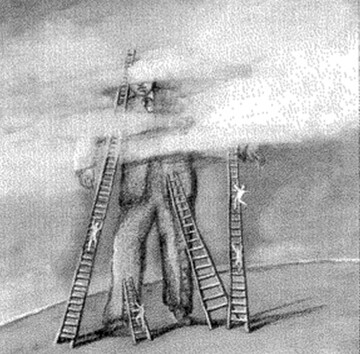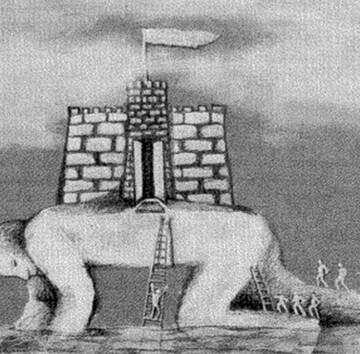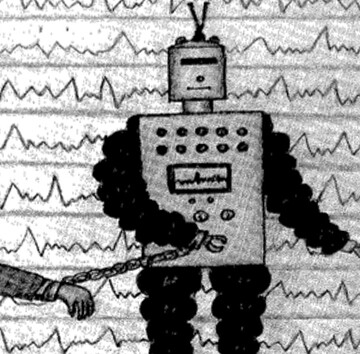In the 1960’s, a fashionable subject of conversation among the Russian intelligentsia was Mikhail Sholokhov’s plagiarism. Sholokhov, it was alleged, had found the manuscript of And Quiet Flows the Don among the personal effects of a certain Cossack, published it as his own, and eventually pocketed the 1965 Nobel Prize for Literature. Just look at...
Category: View
Pico Della Mirandola’s Oration On the Dignity Of Man
I once read that Abdala the Muslim, when asked what was most worthy of awe and wonder in this theater of the world, answered, “There is nothing to see more wonderful than man!” Hermes Trismegistus concurs with this opinion: “A great miracle, Asclepius, is man!” However, when I began to consider the reasons for these opinions,...
“Think of the Children!”
“School cuts would hurt neediest kids,” the headline in the local Gannett paper proclaimed. With the spring primary just days away, the administration of Rockford School District 205 was urging the public to pass the third education referendum in a row. This one would allow the district to issue $23.5 million in bonds and use...
Cowboys and Indians
This little piece requires a head note. Oddly, it is the only thing I have ever written that was honest-to-God censored. I was asked by the Chronicle of Higher Education to write a short opinion piece on the subject of contemporary creative writing courses, etc.—the scene. I wrote this piece, following their guidelines exactly for...
Little Pink Churches for You and Me
For pietist Lutheran pastors in America, it was an embarrassment that would not go away. Since the Reformation, it had always been one of the people’s favorite hymns, penned by Martin Luther himself—second only to “A Mighty Fortress Is Our God.” Written in 1541, “Lord, Keep Us Steadfast in Thy Word” had been an anthem—sometimes...
The Timorous Intellectuals
David Brock, scourge of Anita Hill and Bill Clinton, the young man who gave new meaning and currency to the phrase “Arkansas state trooper,” has made a second career of repenting of his years in the conservative movement. He has now retold the story of his disaffection from the movement in Blinded by the Right:...
Two Trails of Blood
“The blood of the martyrs is the seed of the church.” —Tertullian The spread of Christianity was marked by a trail of blood, shed by myriad martyrs during the first three centuries of the Christian era. Another trail of blood followed: that of the Christian defenders of the Roman Empire, shed by Arabian Muslims in...
He Whose Loss Is Laughter
“To the one who conquers I will give some of the hidden manna.” —Revelation 2:17 Around the turn of the 20th century, the hieromonk Arsenios, parish priest of Farasa in Cappadocia, had secretly baptized one of the wives of a Turk living in his Christian village. Soon after, she lay on her death bed, and...
Nor Shall My Sword Rest in My Hand
When the United States government was seeking to retaliate for the terrorist attacks last year, it was not too difficult to name the obvious targets: Afghanistan (of course), Iraq, Somalia, and the rest of the world’s bandit states. Opponents of military intervention could make few effective arguments, but one point that was quite widely raised...
Tribunals for Terror
When President Bush signed an executive order on November 13 that authorized the trial of non-U.S. citizens on charges of terrorism before special military tribunals, the response from the political right was almost—though not quite—unanimously supportive. Not only did the attorney general himself enthusiastically defend the tribunals, so did such luminaries as the conservative movement’s...
Pandora’s Box
Globalization is remaking the world in ways that will profoundly affect how people do business, govern themselves, and even make war. We may debate what the driving force behind globalization is—capitalism or technology, for example—but there is no doubt that capital goods, services, people, and ideas cross borders with increasing speed, frequency, and ease. Actions...
Ghosts of the Midwest
The decline of the Midwest as a cultural force was well under way by the time Russell Kirk was born in Plymouth, Michigan, in 1918. Yankee influence in the region had largely been replaced by a more vibrant German-American culture, and now the United States, in the midst of the War to End All Wars,...
Nordic Conquests
In Northfield, Minnesota, St. Olaf’s College was celebrating the 17th of May—the day the sons of Norway wrote their constitution in 1814, declaring self-government and independence from Swedish rule. It was 1907, just two years after the Swedes had released Norway and Prince Carl had become Haakon VII. Thirty-one-year-old first-year instructor Ole Rölvaag gave the...
Diseconomies of Scale
“Free trade,” like “free love,” is a beguiling abstraction that hides more than it reveals. Absolute free trade would be an exchange of commodities between two people without the coercive intervention of a third party. But economic exchange is always embedded in a cultural landscape of noneconomic values, which impose restraints. Blue laws prevent trade...
Economic Liberty and American Manufacturing
William Jefferson Clinton mentioned the domestic auto and steel industries a mere seven times in the first two years of his presidency, according to the subject index of his presidential papers. After noting that the auto industry accounted for nearly six percent of the Gross National Product (GNP) in May 1993, President Clinton waited another...
What Makes for Real Prosperity?
Supreme Court Justice Rufus Peckham put it best, in the Trans-Missouri Freight Association decision in 1897. Broadly interpreting the Sherman Antitrust Act as a means to reign in large economic organizations that had spun out of control, Peckham acknowledged that bigger businesses, because of economies of scale, could occasionally reduce prices to consumers. He went...
Racak Revisited
Back in 1994, a major news item proved unfit for publication in any “mainstream” media outlets in the United States. It concerned the possibility—which turned into a virtual certainty—that the Bosnian Muslim government staged the infamous “marketplace massacre” in Sarajevo, killing 66 of its own people. The U.S. government promptly blamed the Serbs. In subsequent...
The Rockets’ Red Glare
While the Bush administration is still in its early days, commentators of repute abroad and at home—never wavering or unsound in the old Cold War days—are complaining (sometimes bitterly) that the new administration’s foreign policy defies reason and experience. Writing in the Toronto Star (February 18), Richard Gwyn imagined what would happen if the dictator...
Cui Bono? Conspiracy Theories: A Rothbardian Perspective
During the debate over our unnaturally extended presidential election, David Corn, associate editor of the Nation, appeared on CNN’s Crossfire and took up the cudgel in defense of Gore and his fellow coup-plotters. The smarmy Corn parried his opponent’s contention that Al Gore and the Democrats were trying to steal the election with a gleeful...
The Western Way of War From Plato to NATO
When I first began reading of the ancient world as a child, I was mystified by the collapse of the Greek city-states and the fall of Rome. How could such a thing come to pass? It seemed perfectly reasonable that Egypt, Sumer, and the Hittite kingdom should have come and gone, but not Periclean Athens...
Apocalypse Now
We are flying amid fluffy, white cottonball clouds that reach above us to tremendous heights, forming darker mountain peaks lined with crevices and tinged by the pinkish-orange glow of the setting sun. My six-year-old daughter, eyes wide in innocent fascination, whispers, “Is this where God lives?” “Even higher,” I answer. “But His angels are here,”...
Gaines Elites Play
“Lord knows where that went,” Boris Yeltsin croaked to one of his Kremlin aides sometime last September. Yeltsin, according to Kremlin sources, was replying to a query from the International Monetary Fund on the expenditure of nearly two billion dollars worth of an IMF “tranche” targeted to stave off impending Russian financial disaster in the...
The Coining of the Third Age
In the early winter of 1999, much of the world is looking forward with eager anticipation or uneasy apprehension to the dawning of the Third Millennium. It is the third millennium A.D., of course, the beginning of the third thousand of the Years of the Lord, and thus directly relevant only to those of us...
The Other Lindbergh
While the most famous member of the Lindbergh clan is undoubtedly the aviator and World War II-era isolationist Charles A. Lindbergh, Jr., the qualities for which he won renown—his courage, his Scandinavian severity, his willingness to stand against the tide of popular opinion, his dislike of cities and the elites they spawned, and (most of...
Downsizing Detroit Motown’s Lament
Detroiters have a deeply ironic way of looking at their beloved city. The irony is evident in a once-popular T-shirt that showed a muscular tough gripping a ferocious dog around the neck while holding a loaded gun to the animal’s head. “Say Nice Things About Detroit,” the T-shirt read. The T-shirt is a commentary on...
Every Neighbor a Litigant
Goethe taught us that true happiness comes from being engaged with others in productive projects, and we have known since Plato and Aristotle that man is a social animal, but we would be hard put to reach these conclusions if our only guide were the current state of American law. Far too often the American...
Magistrate Mahoney Or: How I Learned to Stop Worrying and Started Homeschooling
In May 1995, when our first child was born, my wife and I were living in Northern Virginia. I had just completed the course work for my doctorate, and mv wife was the exhibitions registrar at the National Building Museum in Washington, D.C. But just two weeks later, the day after our daughter was baptized,...
Not Ready, Aim, Misfire America’s Modern Military
Embarkation is the business of puzzling large weapons and vehicles, and the Marines that go with them, onto a ship that is run by a man who insists he does not have enough space for all that you need to take in order to do your job once he takes you where you need to...
That New Time Religion
Americans in the 19th century had a confident pride that they would dominate the coming age, not only because of the immense economic power of the new nation, but as a natural outcome of its moral and religious strength. As Melville had written in White Jacket, “We Americans are the peculiar, chosen people—the Israel of...
The Anti-American Century
The anti-American Century began with a bad moon rising. Our new possessions across the sea were awash in colonial gore. Surveying from afar the corpses of Filipino independence fighters and our blood-spattered flag, Mark Twain suggested that we substitute the skull and crossbones for the stars and stripes. The Indiana-bred poet William Vaughn Moody, a...
Hollywood Does History
At 0825 on 20 November 1943, the first of six waves of Marines left the line of departure and headed for the beach on Betio Island, the principal objective for the United States in the Tarawa Atoll. At 4,000 yards out, shells from Japanese artillery pieces started splashing around the amtracs carrying the Marines. At...
Conservative or Rightist? A Personal Confession
People who know me realize that in the United States I move largely in conservative circles. I write for conservative publishers and periodicals and lecture largely to conservative audiences. I feel at home with them and usually share their views. The vast majority of my friends in America consider themselves to be conservatives, and thus...
Dorothy Day and the American Right
The title “Dorothy Day and the American Right” promises a merciful brevity, along the lines of “Commandments We Have Kept” by the Kennedy Brothers. After all, the founder of the Catholic Worker movement and editor of its newspaper lived among the poor, refused to participate in air-raid drills, and preferred Cesar Chavez to Bebe Rebozo....
Fighting Words: Abortion and Civility
Austrian sociologist Hans Millendorfer claims to have discovered, at least in his native Austria, a perplexing correspondence: his statistics show a rise in abortions paralleled by a rise in civility. To those of us who consider abortion a violent and evil act, it seems strange that such violence should be accompanied by an increase in...
Cowboy Capitalism Lessons From the Asian Meltdown
As the Asian financial and currency crisis spun out of control, the world glimpsed the dark side of the new international economic order. It is highly efficient—linking global markets for goods and money—but dangerously unstable and asymmetrical. For speculators, traders, bankers, and tycoons, there are unlimited opportunities to make money in the global economy. They...
Toward One Nation, Indivisible
It is time we looked at the world from a new perspective, one of enlightened nationalism. Cliches about a “new” global economy aside, there has always been an international economy—ever since Columbus stumbled onto the Western Hemisphere while seeking new trade routes to the East, in the hire of a nation-state, Spain. The Dutch East...
Searching for Foes in the Post-Cold War Era
Despite the President’s and Congress’s promises, the budget is unlikely to be balanced in the year 2002. The bulk of the promised spending cuts come after the year 2000, and future Congresses and Presidents are unlikely to be any more willing than present ones to make tough political decisions. Equally problematic is the fact that...
Maxwell Perkins Is Dead: The Decline of Commercial Publishing
In an industry that trades on rumors of disaster, the tales flying around New York (which I use here as a synecdoche for major publishing houses anywhere) for the past several years are horrendous. Though some of the horror stories may be exaggerated, at least insofar as the specific publishers involved are concerned, they are...
A Hothouse of Goofiness: The American Book Industry
The renowned American jazzman Charlie Parker, introduced to Jean-Paul Sartre in a Paris club during the 1949 jazz festival, reportedly said, “I’m very glad to have met you, Mr. Sartre. I like your playing very much.” According to writer Boris Vian, who also played trumpet and often served as master of ceremonies at the club,...
Judicial Taxation: The States Respond
The Madison Forum was founded in 1993 by Missouri State Senator Walt Mueller and me for three reasons. First, we wanted to respond to the Supreme Court’s claim in Missouri v. Jenkins (1990) that the federal judiciary’ has the authority to levy or increase taxes. We believe this constitutionally baseless assertion by the Court poses...
Arms, Violence, and the State A Historical Perspective
Governments today seek to monopolize violence and to control the ability of people to defend themselves, their families, and their communities. In doing so, governments present themselves not only as representatives and protectors of their people, but also as the necessary end of the historical process. These views can be contested, not only by appealing...
Courtesy
She is a middle-aged grocery clerk, and I have seen her working at Food Lion on Sundays and holidays and late into the evening during the week. Standing at her register, she warmly greets her customers, but she could as easily be receiving tourists at an antebellum mansion on the James River or teaching Arthurian...
Witchfinder: The Strange Career of Morris Dees
The trial, conviction, and death sentence of Timothy McVeigh for the Oklahoma City bombing of April 19, 1995, passed quietly this year, far more quietly than most reporters and some political leaders wanted. The main reason for the calmness of the McVeigh proceedings was probably the utterly uninteresting mind, character, and personality of the defendant....
Mr. Lincoln’s War An Irrepressible Conflict?
“[T]he contest is really for empire on the side of the North, and for independence on that of the South, and in this respect we recognize an exact analogy between the North and the Government of George III, and the South and the Thirteen Revolted Provinces. These opinions … are the...
Popular Front U.
How well I remember, 40 years ago, prowling in the stacks of a college library and reading the books, observing museum pieces in the halls of that library, and attending concerts in the auditorium next door. Glenn Gould showed up to play the Goldberg Variations, Jerome Hines to sing, and Wolfgang Schneiderhan to play Vivaldi...
Reservation Blues: Notes From Indian Country
Just outside Tucson, Arizona, lies a foreign country. It is not Mexico, although that is close by, but Tohono O’odham Nation, an Indian reservation the size of Connecticut that is home to some 30,000 people. Larger than many countries, the Tohono O’odham Nation is a place of astonishing and austere beauty. Seldom visited, it harbors...
From Greeks to Gringos: Why Mexico Lost Texas
Among the terms of endearment applied to Americans who worry about present immigration policy is “xenophobe.” This high-toned word normally precedes lower-toned ones—”racist,” “bigot,” “neo-Nazi,” etc.—which take over as the exasperation level rises. A “xenophobe” is someone who fears foreigners. Fears them why? No dictionary is competent to say. Every xenophobe doubtless has his own...
The Road to Cascadia
They call it Cascadia—a land of plunging waterfalls and snowcapped mountains, a mythical kingdom of towering trees and raging rivers. Here in Seattle, capital of this Arcadia, the sleekly modernistic Space Needle rises up against the backdrop of Mount Rainier, which dominates the horizon—a distinctly Cascadian juxtaposition of mountain and cityscape, forest and skyscraper, greenery...
The Price of Empire Globalism and Its Consequences
I know it will strike many people as odd to call the current foreign policy of the United States a form of “empire building” or “imperialism,” and of course none of our leaders would ever call it that. They would prefer some such term as “peacekeeping” or “spreading democracy” or “nation-building” or “exporting capitalism,” or...
Our Phildickian World
Sometime during the last decade, the Philip K. Dick cult came out from underground. Those of us who spent the 1980’s trying to explain our affection for this pulp writer no one else had heard of, this author of surreal science fictions and bleak realistic novels, have watched both pop culture and the academy discover...
